You wander back into the kitchen after a family board game session and notice a few small, bite marks on the holiday ham. The likely culprit? Your beloved cat, who probably hopped up onto the counter and helped herself to a nibble while no one was looking. But can cats eat ham? And, perhaps more importantly, is ham a safe and healthy food for felines?
We spoke with three veterinarians to learn if cats can safely eat ham.
Is Ham Safe for Cats?
Cats are obligate carnivores, meaning they need to eat meat to survive. But that doesn’t mean you should share your ham sandwich or add a few cubes of holiday ham to your kitty's food dish.
Okay, technically cats can eat ham—but it’s really “not a safe choice,” Whitney Miller, DVM, MBA, DACVPM, the chief veterinarian at Petco says.
“While some think small amounts [of ham] are safe, there is no way to know what amount any given cat will tolerate, so it's best to avoid altogether and opt for better alternatives,” Miller adds.
If you insist on sharing ham with your kitty, you’ll want to make it yourself using cat-safe ingredients.
“The safest option would be to give them ham that has been prepared by the owner,” Janae Saffold, DVM, a veterinarian at VCA Bay Hill Cat Hospital in Orlando, Florida, says. “This way, we know exactly what ingredients are inside.”
Rebecca Greenstein, B.Sc., DVM, the veterinary medical advisor for Rover echoed that sentiment, calling for “extreme moderation” when feeding your cat ham. She added that any ham you choose to share with your kitty should be plain, cooked, and unseasoned.
“Foods outside the main diet should make up no more than 10% of your cat’s daily calorie intake, and in the case of ham, likely less,” Greenstein says.
Potential Health Risks of Ham for Cats
A cat’s optimal diet includes lots of protein, moderate amounts of fat, and small amounts of carbohydrates. They also need vitamins, minerals, amino acids, and fatty acids. At first glance, ham might seem like it meets some of these dietary requirements.
But as a processed meat, ham is also loaded with unhealthy components, including salt, nitrates, and other preservatives and additives. Depending on how it’s made, ham may also contain ingredients that are toxic to cats, like garlic and onion.
Ham is a source of protein, iron, and B vitamins, according to Greenstein. But it’s also high in fat, which can contribute to obesity in cats.
Some other health risks include:
- Vomiting
- Diarrhea
- Pancreatitis
- Salt poisioning
Ham’s high sodium content is particularly problematic. Like other animals, cats are susceptible to salt poisoning, also known as sodium ion toxicosis. This can cause vomiting, diarrhea, lethargy, seizures, and even death. According to Greenstein, salt can be particularly dangerous for cats with heart disease and kidney issues.
“Depending on their weight, as little as 0.05 tablespoons of salt can be toxic to a cat,” Miller adds.
Safer Alternatives to Ham for Cats
Even though cats need protein, veterinarians advise against feeding your cat processed pork products like ham as well as bacon or sausage.
“Cat parents tend to think of protein sources as interchangeable, but my preference is to avoid fattier meats like ham in favor of leaner proteins like chicken or turkey—or, just stick to their cats’ complete and balanced regular commercial diets," Greenstein says.
Instead, stock up on treats and cat food that you can serve to your kitty with confidence. If your cat is picky and you want to make her food even more enticing, consider adding a food topper into the mix.
“There are plenty of other treats and pet food available in tasty flavors your cat will love such as tuna, salmon, or chicken that safely meet their nutritional needs,” Miller says.
- What to do if your cat accidentally eats ham?
If your cat eats a tiny amount of ham, she will probably be OK—though her stomach might be upset. However, if you want to err on the side of caution, or you just aren’t sure how much ham your cat has eaten, call your veterinarian right away. You should also call your vet if your cat is exhibiting any troubling symptoms like vomiting, diarrhea, lethargy, or shortness of breath, Miller says.
Are there any types of ham that are safer than others?Veterinarians recommend not feeding your cat ham. However, if you want to give your feline some ham, you should make it yourself so you can control the ingredients. Also, it’s best for the ham to be plain, cooked, and unseasoned.
Why is ham bad for cats?Ham contains high amounts of sodium, which can cause salt poisoning. In addition, it may have been prepared with ingredients that are toxic to cats, including garlic and onion. The high fat content can also contribute to obesity. Adding new foods to your cat’s diet can cause gastrointestinal issues like vomiting and diarrhea.

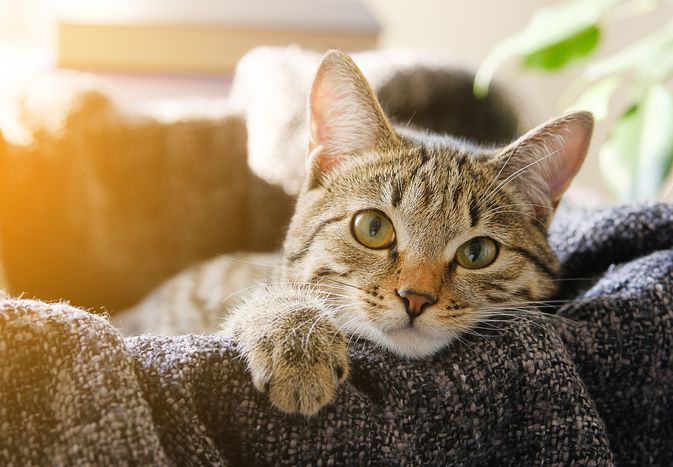
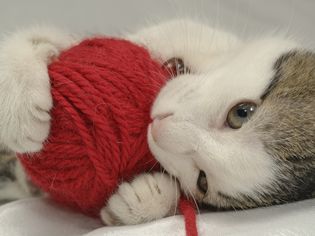
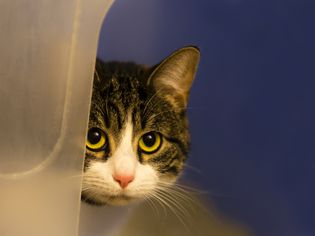
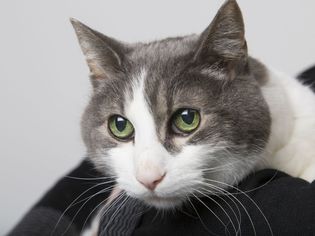
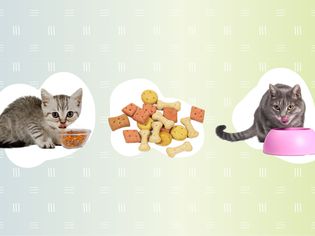
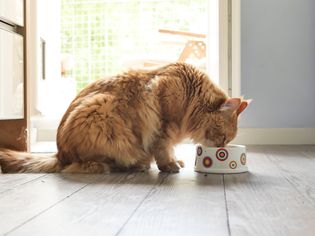
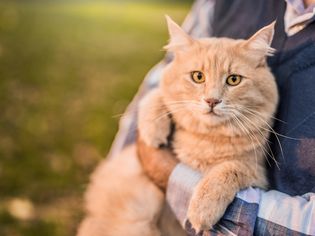
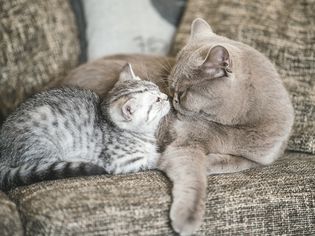
Comments on "Can Cats Eat Ham? Why Ham Isn't the Best Choice for Your Little Carnivore" :